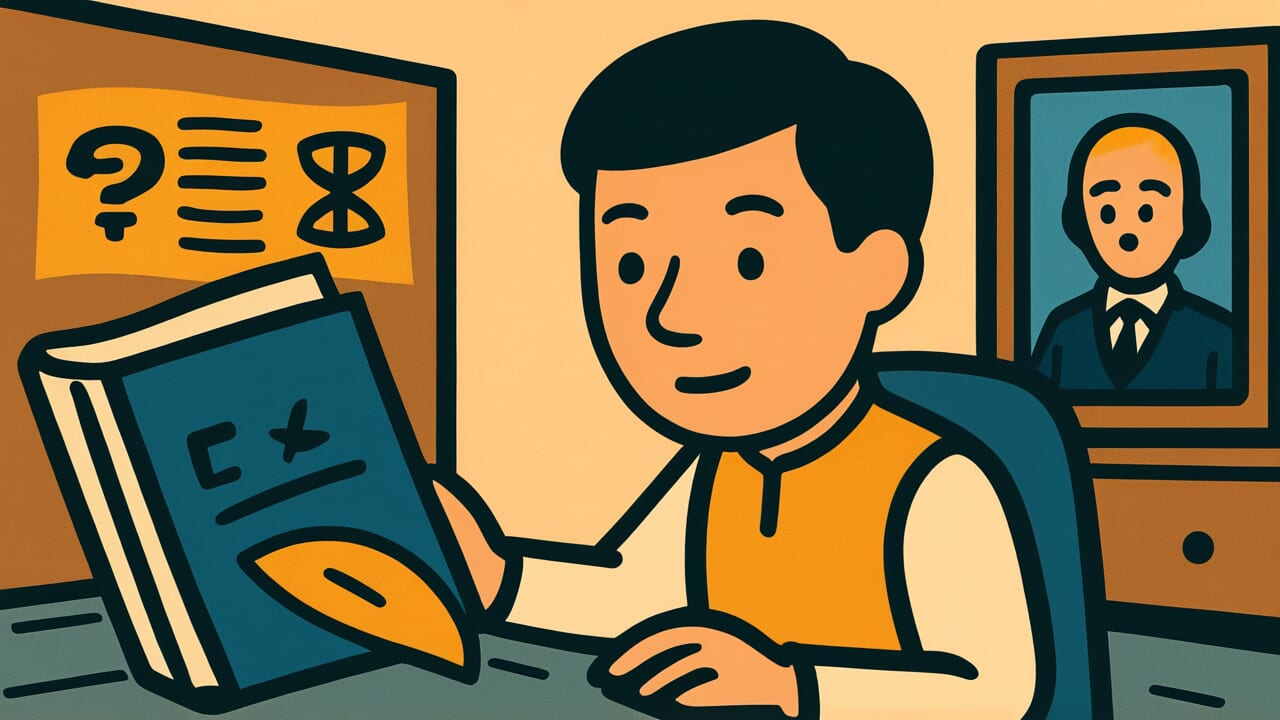How to Read “Learning is a lifetime”
Narau wa isshō
Meaning of “Learning is a lifetime”
“Learning is a lifetime” is a proverb that means learning never ends. People should continue learning throughout their entire lives.
No matter how much knowledge or skill you gain, you never reach completion. The important thing is to always learn new things and keep growing.
This proverb is used for people who think they’ve learned enough and stop studying. It also applies to those who believe learning isn’t necessary after a certain age.
People also use it to praise those who humbly continue learning.
Today, some people think learning ends when they graduate from school. But this proverb says the opposite.
Regardless of age, there are infinite things to learn at every stage of life. By continuing to learn, people can keep growing.
Origin and Etymology
The exact source and time period when this proverb emerged aren’t well documented in historical records.
However, the structure of the phrase reveals a simple yet powerful message.
The word “narau” (learning) doesn’t just mean acquiring skills or knowledge. It represents the traditional Japanese approach to learning, passed down from master to student.
When combined with “isshō” (lifetime), it clearly expresses the truth that learning has no end.
Japan has long had a culture of “dō” or “the way.” In tea ceremony, flower arrangement, and martial arts, mastering any field has been considered a lifelong pursuit.
Masters who practiced for decades still maintained a humble attitude. They would say “there is still much to learn.”
This proverb likely emerged from Japan’s craftsman spirit and pursuit of mastery. It doesn’t set a completion point or final destination.
The attitude of constantly seeking improvement is true learning. This philosophy is condensed into these few words.
It may have been naturally passed down through Edo period temple schools. The culture that valued master-student relationships probably helped preserve this saying.
Usage Examples
- Watching my father enter university after retirement made me realize that learning is a lifetime
- Professional athletes never skip basic practice because they embrace the spirit that learning is a lifetime
Universal Wisdom
The proverb “Learning is a lifetime” contains a deep truth. Human growth has no end.
Why must people keep learning? Because the world constantly changes. And humans themselves are beings that continue to change.
Yesterday’s you and today’s you aren’t strictly the same. You have new experiences, new encounters, and new questions arise.
The world also never stays in the same state for even a moment. In this dynamic relationship, stopping learning doesn’t just halt growth.
It actually means moving backward.
Our ancestors understood human arrogance. When people gain a little knowledge, they think “I understand now.”
But those who truly learn deeply realize their own ignorance. They become humble. This proverb brilliantly captures this essential human trait.
Continuing to learn isn’t simply about accumulating knowledge. It means maintaining curiosity and staying flexible.
Most importantly, it’s about living itself.
The moment you stop learning, your mind begins to age. Conversely, as long as you keep learning, you can maintain a youthful spirit at any age.
When AI Hears This
The human brain has a ruthless rule: “delete circuits you don’t use.” This is called use-dependent synaptic pruning.
When you learn a new language, synapses connecting nerve cells multiply in your brain. But if you don’t use them for three months, those connections physically start getting cut.
Like a smartphone automatically deleting unused apps, the brain prioritizes energy efficiency above all.
What’s interesting is that this pruning process accelerates with age. In your twenties, learning circuits remain for about six months after you stop studying.
But in your fifties, reduction begins within weeks according to research. The older you get, the faster you lose what you don’t use.
Even more noteworthy is the concept of cognitive reserve. This is the brain’s backup system that maintains function even when damaged.
After age forty, the act of learning new things itself is the only way to build this reserve. Simply repeating the same things has little effect.
In other words, “Learning is a lifetime” was a biological requirement for maintaining brain structure. Continuing to learn isn’t about spiritual aspiration.
It’s a concrete action to protect the health of your brain as an organ.
Lessons for Today
This proverb teaches you that life starts fading the moment you stop learning. Learning doesn’t end when school education ends.
Rather, that’s when real learning truly begins.
In modern society, the pace of change is faster than ever before. What was common sense ten years ago often doesn’t apply today.
That’s why the attitude of continuous learning becomes the key to enriching your life.
Learning doesn’t have to be rigid or formal. Trying a new hobby, talking with people from different generations, experiencing new cultures while traveling—all of these are learning.
What matters is not thinking “that’s enough.” Keep the exciting feeling that “there’s still something I don’t know.”
Growing older isn’t a reason to stop learning. Rather, it’s the privilege of building new learning on top of your foundation of experience.
It’s not too late starting today. Why not nurture the seeds of curiosity within you?



Comments